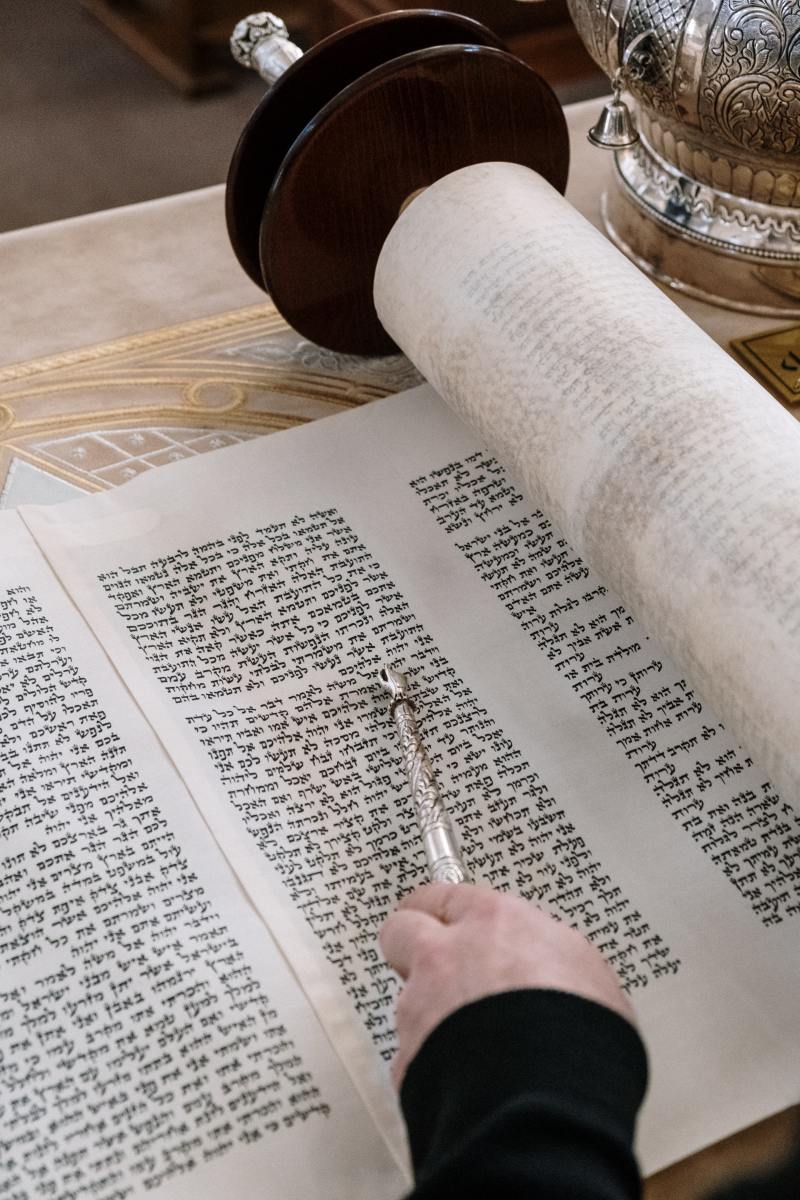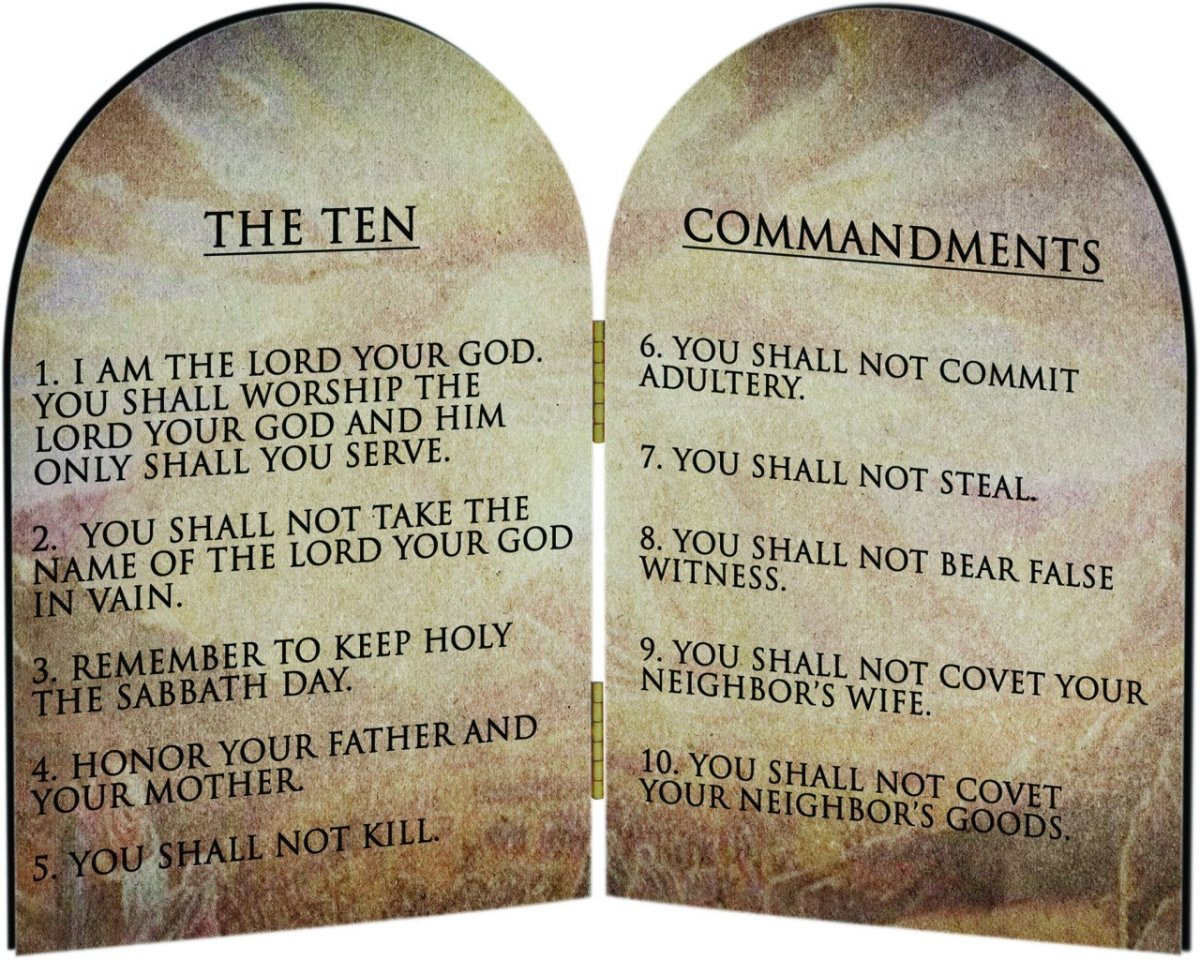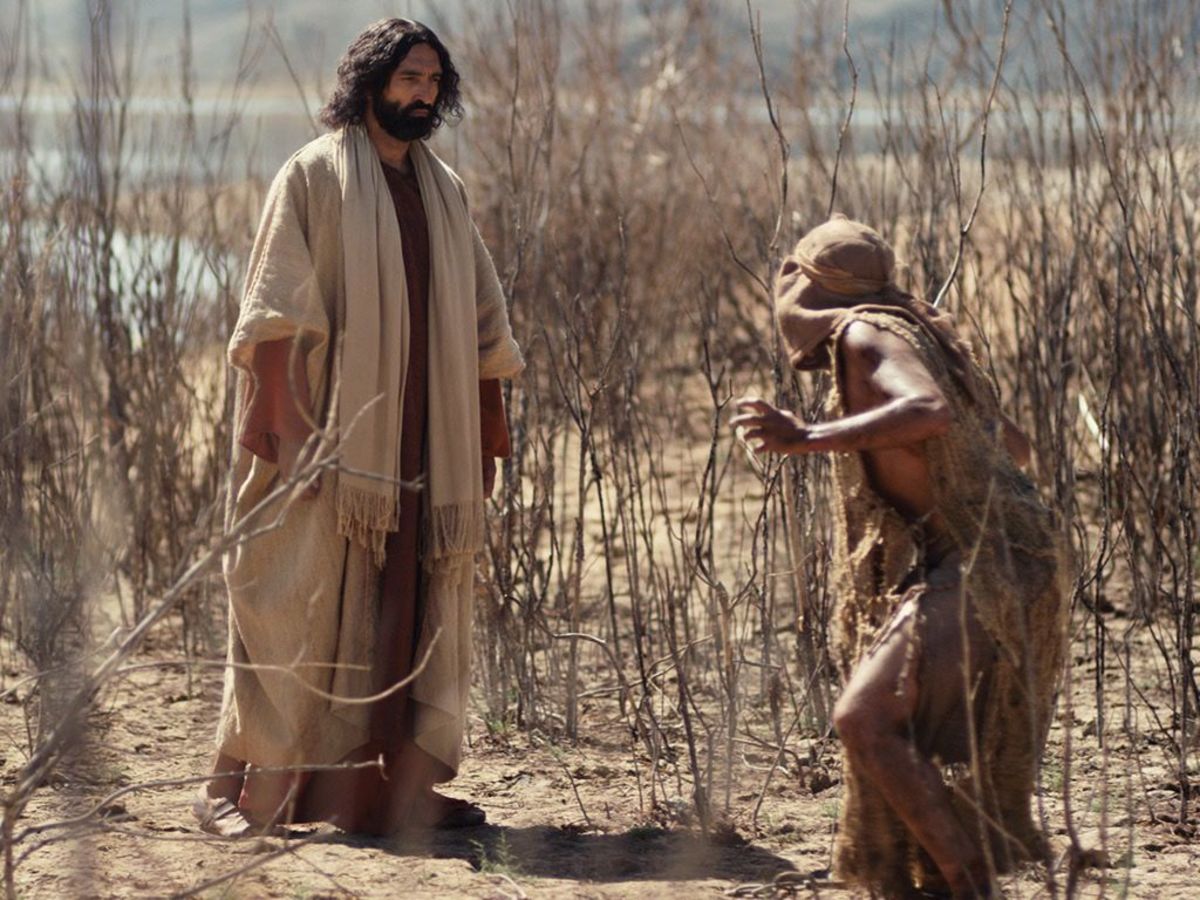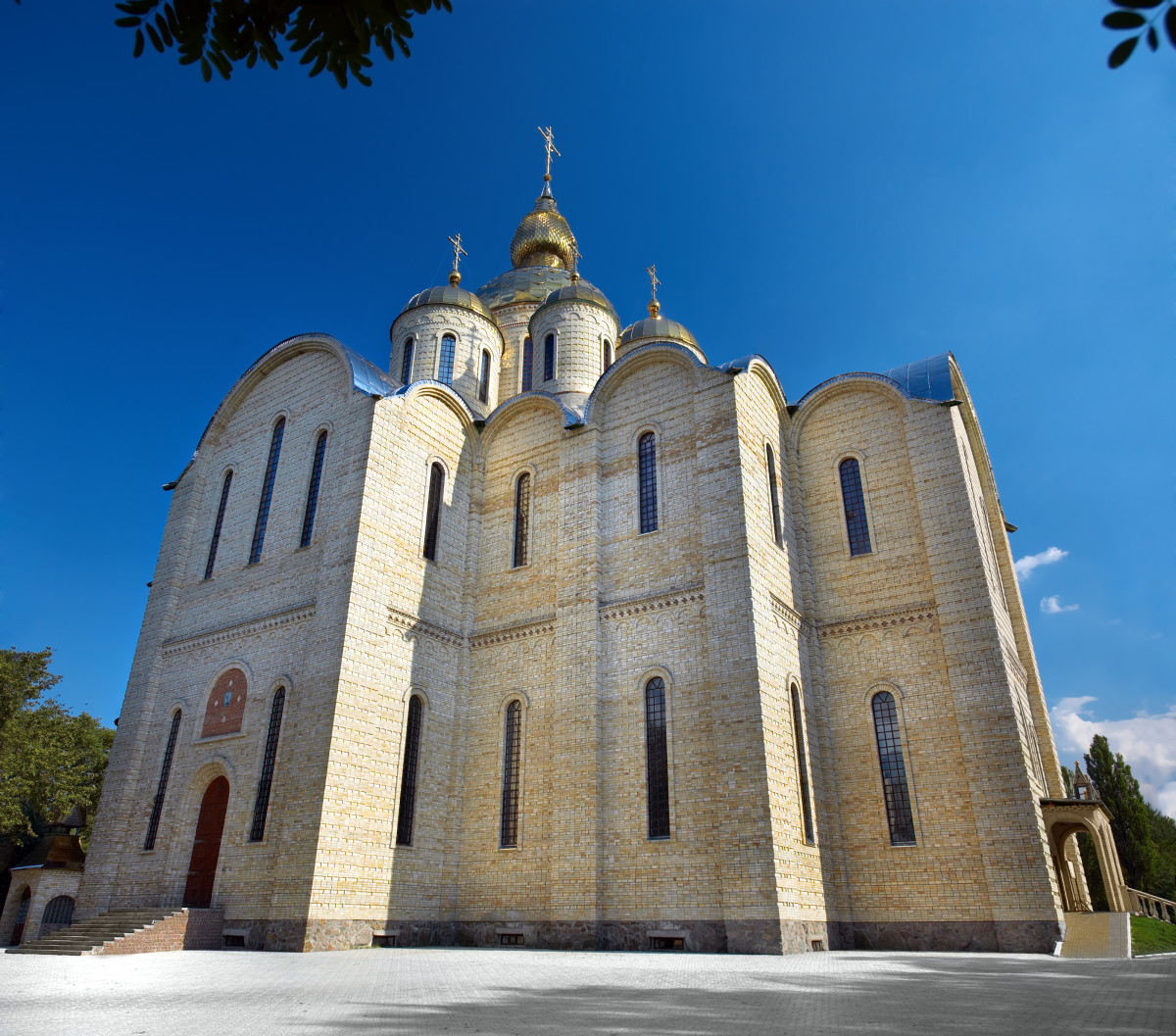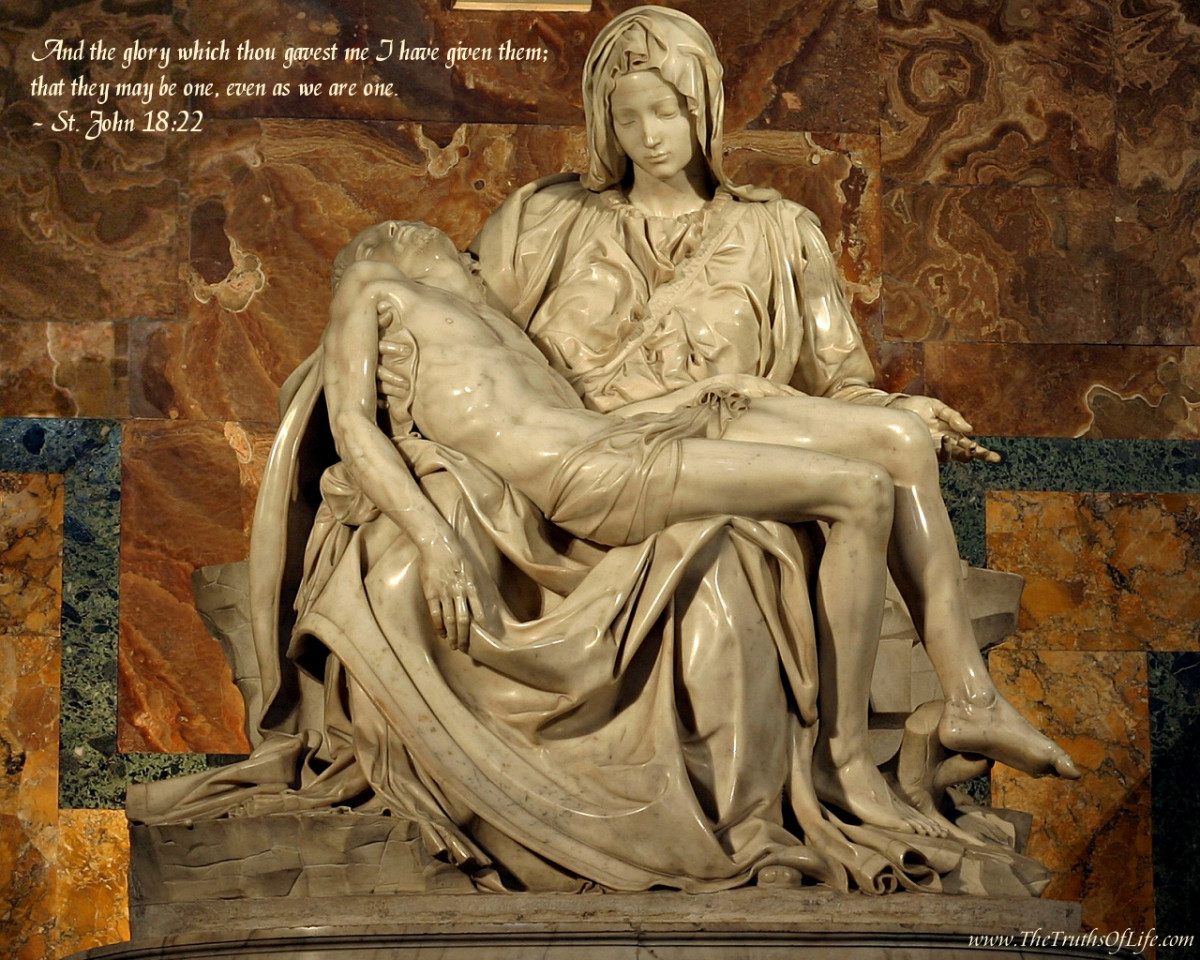Love Thy Neighbor as Thyself
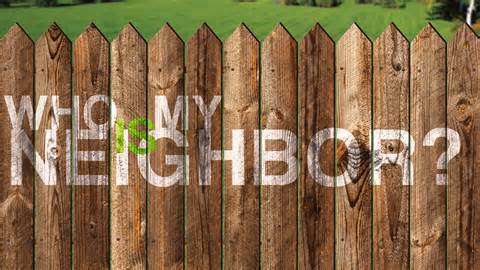
"And behold, a certain lawyer stood up, and tempted him, saying, Master what shall I do to inherit eternal life?
He said unto him, What is written in the law? how readest thou?
And he answering said, Thou shall love the Lord thy God with all thy heart, and with all thy soul, and with all thy strength, and with all thy mind; and thy neighbor as thyself.
And he said unto him, Thou hast answered right: this do, and thou shalt live. But he, willing to justify himself, said unto Jesus, And who is my neighbour?
And Jesus answering said, A certain man went down from Jerusalem to Jericho, and fell among thieves, which stripped him of his raiment, and wounded him, and departed leaving him half dead.
And by chance there came down a certain priest that way: and when he saw him, he passed by on the other side.
And likewise a Levite, when he was at the place, came and looked on him, and passed by on the other side.
But a certain Samaritan, as he journeyed, came where he was: and when he saw him, he had compassion on him.
And he went to him, and bound up his wounds, pouring in oil and wine, and set him on his own beast, and brought him to an inn, and took care of him.
And on the morrow when he departed, he took out two pence, and gave them to the host, and said unto him, Take care of him; and whatever thou spendest more, when I come again, I will repay thee. Which now of these three, thinkest thou was neighbor unto him that fell among the thieves?
And he said, He that shewed mercy on him. Then said Jesus unto him, Go and do likewise" (Luke 10:25-37 KJV).
The Great Commandment - Thou shall love the Lord thy God with all thy heart, and with all thy soul, and with all thy mind-
- Loving God With All of Your Mind
Loving God with our mind is truly a treasure. This love is a royal spiritual diadem given to the soul to quicken it to resurrection power that springs forth to embrace the oneness that makes us whole.
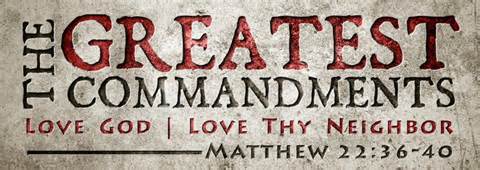
The Great Commandment
"Then one of them, which was a lawyer, asked him a question, tempting him and saying, Master, which is the great commandment in the law? Jesus said unto him, Thou shalt love the Lord thy God with all thy heart, and with all thy soul, and with all thy mind. This is the first and great commandment. And the second is like unto it, Thou shalt love thy neighbor as thyself. On these two commandments hang all the law and the prophets" (Matthew 22:35-40).
The second commandment is loving our neighbor as our self. Our neighbors are not just those who live in the apartment above us, or the house next door. Our neighbors consist of the community within society.
Our neighbor could be anyone, and be anywhere. No, they are not omnipresent. When we walk down the streets, and ride in cars, buses, trains and planes, we are seeing neighbors. When we are in the grocery store talking to the person in front or behind us in the line, we are conversing with our neighbors. We are neighborly when we are putting the separator between our groceries and theirs. If you see them heading for the line first, it's extending to them that courtesy and letting them go first. When we go to Church, it is not only greeting familiar faces and saying howdy to them, but greeting the strangers within the gates, give them a hug, they are our neighbors and brothers and sisters. Some have entertained Angels unaware. Have you ever needed a hug? I have discovered that the antidote to needing a hug is giving a hug. Hi there neighbor, yes I am talking to you reading this hub, how are you doing? I greet you in the name of the Lord Jesus Christ. Thanks for dropping in to fellowship through the hub pages experience.
My mother used to say, "you don't treat others the way they treat you, you treat them better than they treat you". At the time those words didn't have the same significance as they do today. In treating people better than they treat you, it is you who holds the power and you will have to ask yourself. How would I want to be treated? Her words were in alignment with Jesus' words to love your enemies, do good to those who mistreat you and persecute you for righteousness sake, bless them that curse you and pray for them which despitefully use you. Read more in Luke 6.
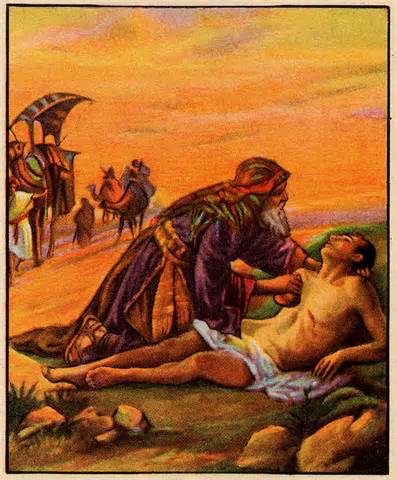
The good Samaritan didn't know this man from Adam. Jesus explained that he considered this man his neighbor and assisted him. All people are our neighbors wherever we encounter them in our daily travels. Greeting people is considered polite and courteous as we go on our way, and it is a neighborly attitude. This episode is loaded. First a priest came where this man was wounded and half dead, he looked on him and passed by on the other side. Why? He saw this man as a problem to be avoided which influenced his actions to cross over on the other side. It is interesting that Jesus used a priest of all people.
This is quite a story, it is called a parable. Jesus loved teaching this way and we love hearing and practically applying them, right? Amen. We have a man going on his way from one point to the next and falling into the hands of thieves, who took his clothes and wounded him, and left him half dead. The thieves saw him as an opportunity to exploit by theft and bodily harm.Sounds very familiar, huh! Yet this was a least 2,000 years ago with the same criminal element and intent. The story goes on to tell us that by chance a certain priest was traveling that way as well and when he saw this wounded man he passed by on the other side. The following definitions were obtained in a on-line search and are from various Bible dictionaries in order to lay a backdrop for the understanding of the story.

Priest
A man who officiates in sacred offices. Among pagans, priests were persons whose appropriate business was to offer sacrifices and perform other sacred rites of religion. In primitive ages, the fathers of families, princes and kings were priests. Thus Cain and Abel, Noah, Abraham, Melchizedek, Job, Isaac and Jacob offered their own sacrifices. In the days of Moses, the office of priest was restricted to the tribe of Levi, and the priesthood consisted of three orders, the high priest, the priests, and the Levites, and the office was made hereditary in the family of Aaron. Every priest taken from among men is ordained for men in things pertaining to God, that he may offer both gifts and sacrifices for sins. Heb.5. We can't say what this priest heart was like seeing that he could have been praying and making atonements for this man as he crossed over to the other side. Was that the neighborly thing to do? We would probably know this action as crossing over to the other side of the street and away from the occurrence.
Levites
Pentateuch. The Hebrew word for Levite (lew") indicates a descendant of Levi, the son of Jacob and Leah. There were three family clans within the tribe of LeviGershon, Kohath, and Meraribut it was only Kohath who supplied the Aaronic priests. Subsequent to the induction of Aaron and his sons into the priesthood, the entire tribe of Levi was "set apart" following the golden calf incident . They were blessed and chosen because their actions signified their loyalty to the covenant. Thus, the prophecy of Jacob that Levi's descendants would be scattered throughout Israel was fulfilled, not as a curse but as a blessing. Their zeal for the Lord caused the male Levites (except for Aaron's family, who were already designated as priests) to be set apart as caretakers of the tabernacle and as aides to the priests. Each clan in the tribe now had specific duties related to the tabernacle. Because this appointment came about due to their actions and was not based on their relationship with Aaron or his family, it was "providentially coincidental" that it was the tribe that contained the priests. Because of this a progression can be demonstrated in terms of separation and responsibilities from nation to tribe (Levi) to priesthood.
The Levites' "set apart" status is demonstrated by their taking the place of the firstborn, who by right belonged to God. Another indication of Levi's distinction is found in Numbers 1:47-54, where God instructs Moses not to number the Levites with the other tribes. The Levites were set apart but their status must still be seen as significantly different from that of the priests (even though all priests were Levites too). As aides, not officiating priests, theirs is an intermediate status between the people in general and that of the priesthood (i.e., the priests were made holy, the Levites were made clean; the priests were anointed and washed, the Levites were sprinkled; the priests were given new garments, the Levites washed theirs; blood was applied to the priests, but was waved over the Levites). The Levites were explicitly permitted to go near the Tent of Meeting, and this special privilege more than any other duty distinguished them from ordinary Israelites.
Well after the priest, there came a Levite and when he arrived at the place where this man laid, he too gazed at him and passed by on the other side. This biblical account doesn't tell us whether the wounded man was of Jewish decent or if he was a Samaritan. The point of the story is not based upon what nationality he was. It is based on a neighborly spirit and depicts who a neighbor is along our journey. It is a story that spills out real compassion for another human being.
Samaritans
The name given to the new and mixed inhabitants whom Esarhaddon (B.C. 677), the king of Assyria, brought from Babylon and other places and settled in the cities of Samaria, instead of the original inhabitants whom Sargon (B.C. 721) had removed into captivity; These strangers amalgamated with the Jews still remaining in the land, and gradually abandoned their old idolatry and adopted partly the Jewish religion.
After the return from the Captivity, the Jews in Jerusalem refused to allow them to take part with them in rebuilding the temple, and hence sprang up an open enmity between them. They erected a rival temple on Mount Gerizim, which was, however, destroyed by a Jewish king (B.C. 130). They then built another at Shechem. The bitter enmity between the Jews and Samaritans continued in the time of our Lord: the Jews had "no dealings with the Samaritans". Our Lord was in contempt called "a Samaritan" . Many of the Samaritans early embraced the gospel. Of these Samaritans there still remains a small population of about one hundred and sixty, who all reside in Shechem, where they carefully observe the religious customs of their fathers. They are the "smallest and oldest sect in the world."
The Good Samaritan
But a certain man from Samaria, who is called the "Good Samaritan" most of the time when we hear this account taught or preached. As he journeyed, came where the man was, and when He saw him, he had compassion.
Mercy stirred within his heart and grace was an advocate as well as to how to get this wounded man to safety. The good Samaritan went right to where this man was lying and he bound up his wounds and poured in oil, and wine as a medicine and ointment to start the healing process. This good man also put the wounded man on his beast and took him to an inn and took care of him. The good man had to leave the next day, but paid the bill and made arrangements with the inn keeper, that if any money was owed pass this day, when he came back through he would repay this debt as well. What a beautiful story of mercy and compassion. This opportunity for assistance stopped this man and moved him with compassion for a complete stranger that Jesus explains when we meet up with them is our neighbor. As we sojourn any and everywhere those we meet along the way are our neighbors.

This is the test of the social aspects of our characters. Loving God with all of the heart, soul, mind and strength gives us the ability to love our neighbors as our selves. Are we passing the test? We know that if we were in that scenario like the wounded man, that we would most definitely want someone to stop and show us the same measure of mercy and compassion. However, this is not a story about receiving mercy and compassion, but it is about giving it and of one's self to help someone in distress. We have received that measure of compassion from God the Father through Jesus Christ, and by the power of the Holy Spirit.
We were once wounded spiritually and left for dead and resided in trespasses and sins. There are some in the religious community who looked upon us as we laid in our sins and trespasses as well, and passed by on the other side, yet they too could have been praying. But Jesus came where you and I were and had compassion, He poured in the oil and wine and took us to the place of healing and continues to heal us.
Jesus is the good shepherd who cares about His sheep and His rod and staff guide and comfort us. Jesus paid the price long before we could end up without hope and He owes no further debt for our salvation. The good man told the inn keeper if any further debt was owed that he was willing to pay that as well. Jesus told the Heavenly Father that He would pay our debts. Jesus told this story as a response to the question He was asked, who is my neighbor? Everyone qualifies as a neighbor even sinners. Oftentimes we don't get to choose whether we will live where sinners are, but they are neighbors just the same. We cannot erase them from the neighbor equation, but we can pray and witness to them of God love.
Only God would understand the level of spiritual depravity which was too great to bear without a savior. He gave only His Son. Sin is why and how we were wounded and left for dead. The wages sin pay is death, the state we were in was a wounded state, but sin could not absolutely kill us because Jesus is greater than sin and so is His blood. This story is applicable on a spiritual level as well as the natural. We should all know what it means to be spiritually wounded stripped of our raiment and wounded and left for dead. Where was our raiment of right standing with God? The thief that came to kill, steal and destroy had stripped our raiment and left us half dead too. But then the Good Shepherd showed up, full of compassion and poured in the oil and the wine and He showed us the way to the Heavenly Father.
The raiment and covering God intended for us to wear; righteousness, holiness, and all of His divine attributes that were applicable for all humanity. It began with Adam and Eve who after they had eaten from the forbidden tree, realized that they were naked and exposed and that the thief had conned them out of their raiment. There was a spiritual covering they had prior to the fall. Fellowship with God covered Adam just like raiment covers. He was stripped of this raiment and wounded and left to die as God had already told him, that in the day he ate from the tree that he would surely die. He didn't die physically, but he did die spiritually. The separation from God had to be a devastating blow.
The wine poured into the wounds represents the healing, restoring power of the Holy Spirit. In New Testament times, wine was used as a medicine and disinfectant. Oil was also used in the treatment of wounds as well as protection against the scorching sun or dryness of the desert. Oil was also regarded as a symbol of honor. The Good Samaritan did the right thing towards his neighbor regarding his immediate need for healing and protection but the moral of this story is he honored a life as he would his own.
Who is our neighbor spiritually and naturally? Every member of the Body of Christ is our neighbor as well as our sisters and brothers. Our membership in God's royal family is multi-faceted. We relate on many different levels. We may not know that a person is a Christian until we see their fruits and have a conversation with them. How about when we do not know them but meet them along our journey in the grocery store or other places, we then have to put on our neighborly hat and love our neighbor as our self by showing respect and being courteous, kind and polite. Sinners are our neighbors whether we want to believe it or not. Loving a sinner as you love yourself should come rather easy when you factor God's grace, mercy and love into the equation. When I was dead in trespasses and sin Jesus appeared, and I desire that He appears for the sinner too, just like He did for me. Bless the Lord!
This is bigger than what we can really imagine. On a larger plain and globally, we are apart of a country that has neighboring relationships with other countries and we have built allegiances with them. On a whole America is a neighbor to so many and has learned the lessons that being neighborly teaches. In this story there are components which transcend nationality barriers and provides hope that lies in the heart of a man to do the right thing towards his neighbor. The scope of loving our neighbor as ourselves is a mammoth directive, but it is possible because all things are possible with God and He wouldn't have made it a commandment if it were not possible. Love thyself but love your neighbor also.
Heavenly Father,
Forgive us our trespasses, to trespass means that will failed to respect established boundaries. Respect for boundaries are imperative and they help us to approach the throne of grace through the cleansing blood. Your sinless love cancels sin so that we do not trespass against You. Help us to discern and understand that respect for You first and foremost is the ultimate of awe we can have and that it is transferable to our neighbors in the world. Let us see that a word spoken against someone is a trespass and teach us how to use our words for good and to be syncopated with Your Word. Thank you for all of Your Commandments which give our lives its frame, and fashion us in Your image and likeness. Amen

